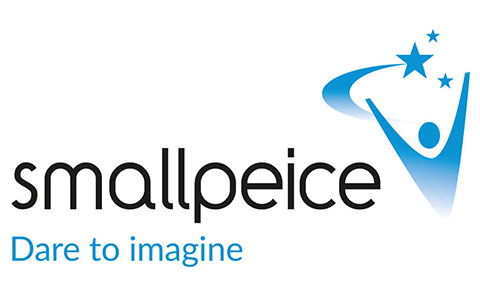
Smallpeice Trust
Sponsor
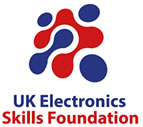
This initiative has been developed in partnership with the UK Electronics Skills Foundation (UKESF), and with the sponsorship of organisations including the Smallpeice Trust, and support and donations from a wide range of companies, charities and other organisations.
The Logic and Arithmetic kit incorporates core electronics concepts suitable for A-level Computer Science students, in particular covering aspects of Boolean operations, logic gates and base 2 (binary) number systems.
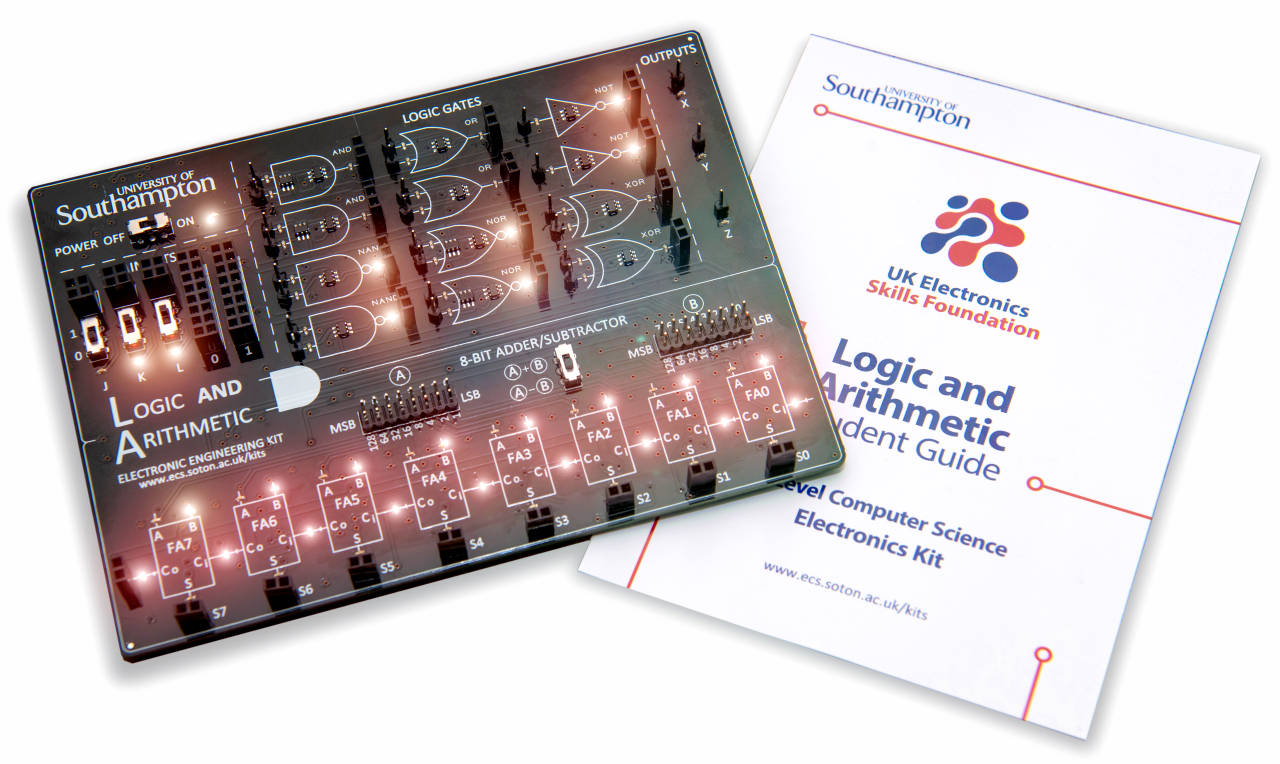
The kit is split into two sections: 'Logic' and 'Arithmetic', with Light Emitting Diodes (LEDs) used to indicate logic states throughout.
The kit is currently not available to purchase, but limited numbers are being provided to schools for free. Schools/colleges interested in receiving kits, or organisations interested in sponsoring the scheme, can join our mailing list to find out more.
We are building teaching resources around these boards, for example our accompanying set of logic problems (and solutions) and online training video. If you would like to contribute resources, please contact us.
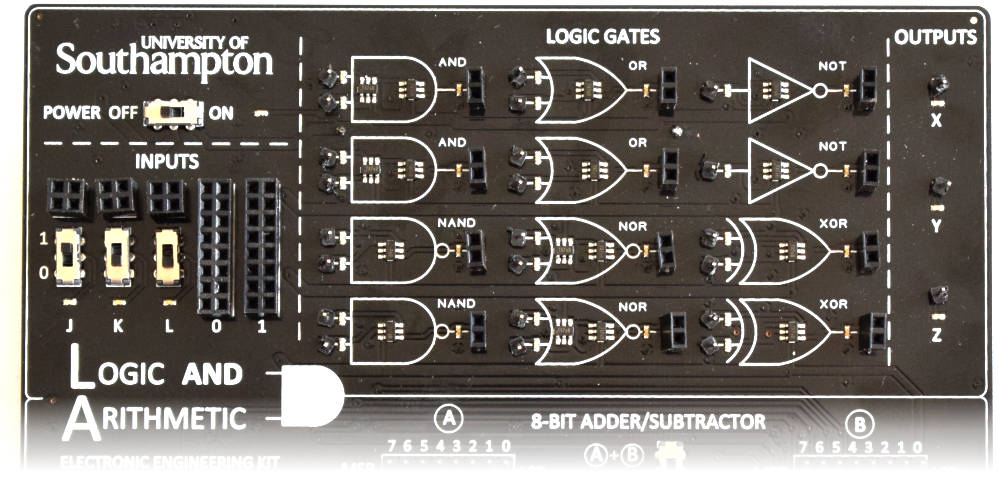
This can be used to explore Boolean operations and logic gates, and to implement simple logic functions and circuits. The board has three switchable logic inputs, a range of different logic gates (AND, OR, NAND, NOR, XOR, NOT), and three logic outputs. Orange LEDs indicate the state (logic 0 or 1) of the individual inputs and outputs of every gate.
This tutorial video walks viewers through the typical use of the Logic Section of the kit, and demonstrates how you can use it to connect inputs, logic gates and outputs together in order to implement and explore a logic problem.
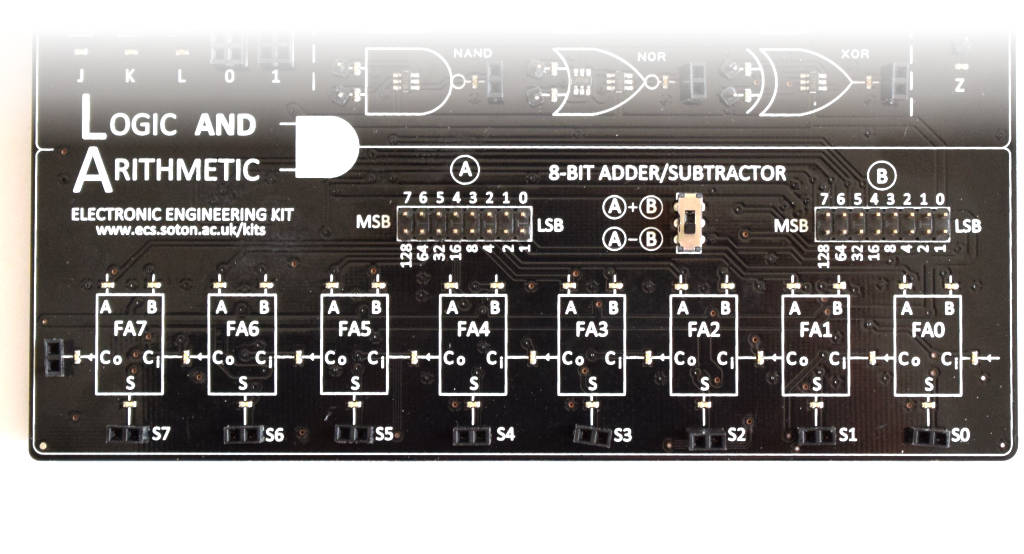
This provides an 8-bit two’s complement adder/subtractor circuit, offering the ability to perform A+B or A-B (where A and B are 8-bit binary numbers). This can be used to experiment with unsigned and signed binary arithmetic, as well as offering a different way to observe and understand binary number systems. This can even be extended to a 9-bit adder circuit, by using the Logic Section of the kit to implement a Full Adder.
This tutorial video walks viewers through the typical use of the Arithmetic Section of the kit, demonstrating how you can use it to add two 8-bit unsigned binary numbers, and add or subtract two 8-bit signed two's-complement binary numbers.

To provide training to teachers who were not able to travel to the University to attend one of our CPD workshops, we have recorded a video which walks through the Logic and Arithmetic Electronic Engineering Kit's Training Handbook.
We are keen to receive any feedback that you might have about this video. If there are parts that are unclear, or additional things that you would like demonstrated, please contact us.
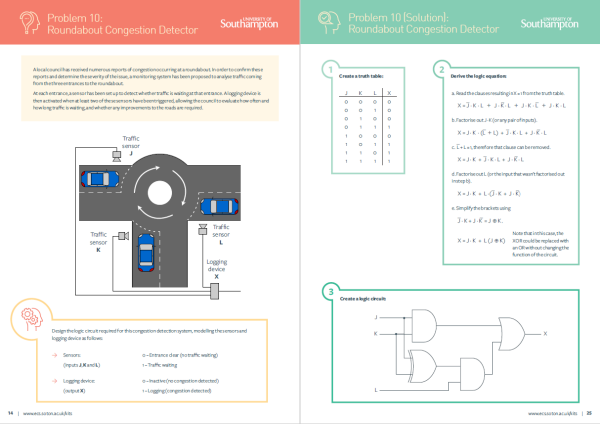
This set of Logic Problems, based on real engineering examples, is specifically designed to accompany our Logic and Arithmetic Kit.
The logic problems were created by Kiran Patel, a UKESF Scholar, while he was a student at the University of Southampton studying Electronic Engineering with Computer Systems. There are a total of 10 different problems, of increasing difficulty, with accompanying worked solutions.
If the Logic and Arithmetic board does not work, first of all:
If the kit still does not work then please email us.
It is essential that we maintain student engagement in Physics and Computer Science at A-Level as these are the gateway to engineering, hence our interest in working with UKESF and the University of Southampton to support teachers to inspire students’ interest in these subjects.

Sponsor
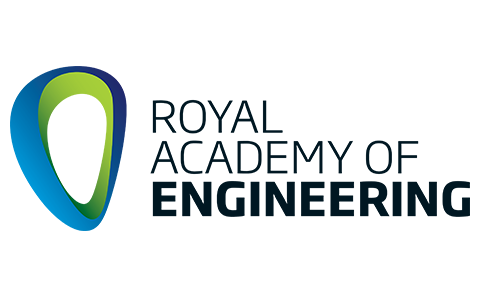
Supporter
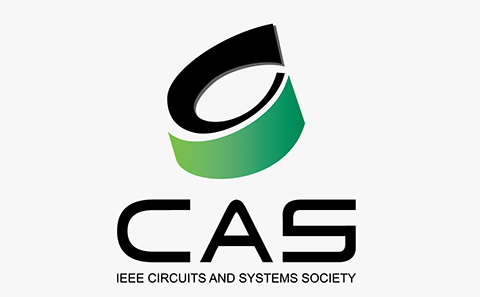
Supporter
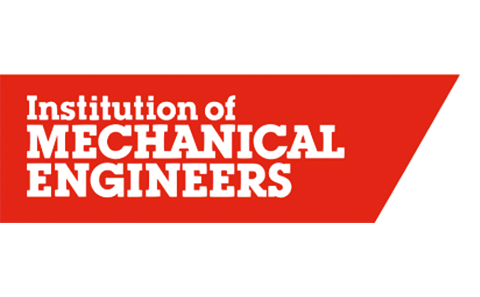
Supporter
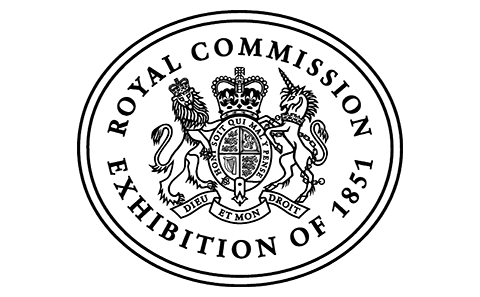
Supporter

Supporter
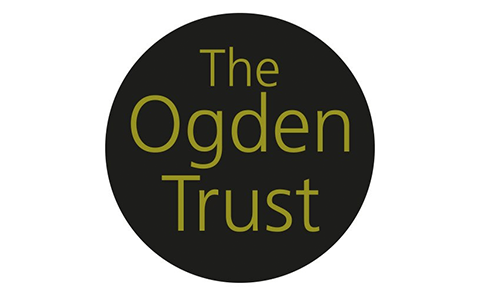
Supporter
Donor
Donor
Donor
Donor
Donor
Donor
Donor
Donor
Donor
Donor
Donor
Donor
Donor
Donor
Donor
Donor
Donor
Donor
Donor
Donor
Electronics and technology play a vital role in tackling society’s biggest challenges, but at the moment, not enough young people have the opportunity to experience these subjects in an engaging way, or consider what career opportunities they could lead to.
The A-Level Computer Science Logic and Arithmetic Kit has been created by the following team from the University of Southampton and UK Electronics Skills Foundation:
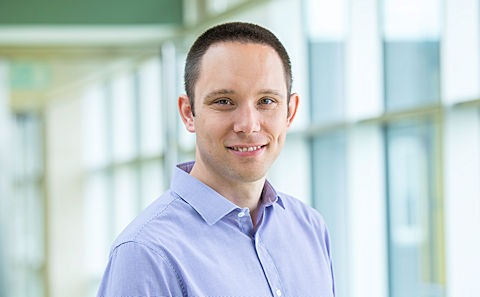
Geoff is a Professor and Director of Outreach and Recruitment in ECS, and has led on the development of the A-Level Computer Science kit.
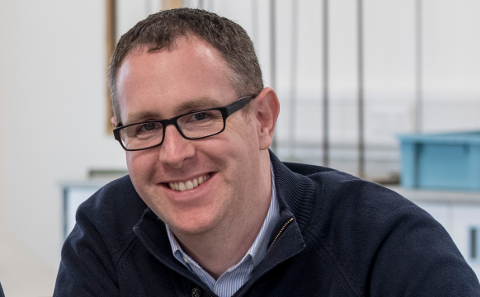
Alex is a Lecturer in ECS, and is leading on professional development activities using the A-Level Computer Science kit.
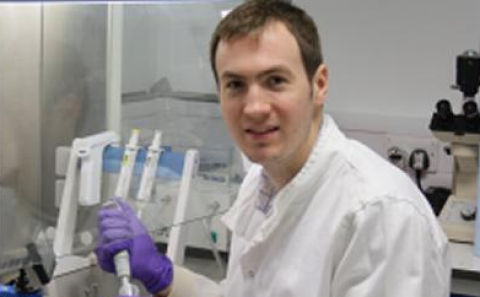
Daniel is a Lecturer in ECS, and part of the team developing the A-Level Computer Science kit.
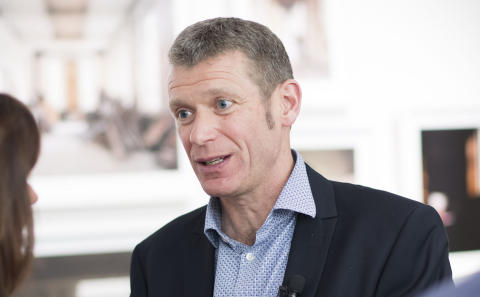
Stewart is the CEO of the UK Electronics Skills Foundation, and has led on securing funding to get the kits into schools.
For information on when kits are available, and other developments in the project, please join our mailing list.
For any other enquiries, or to contribute resources, please email kits@soton.ac.uk.